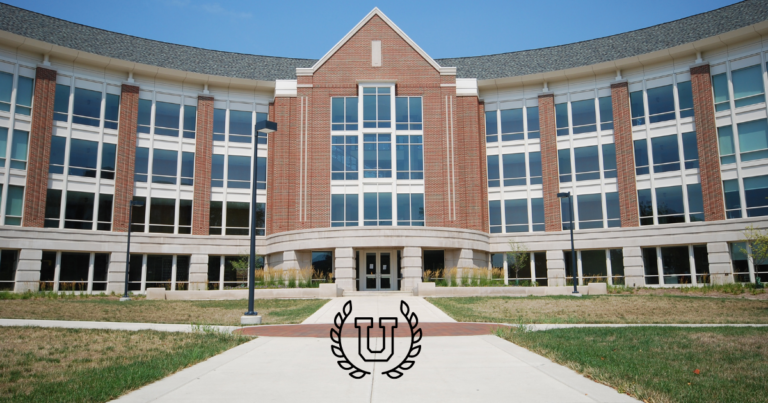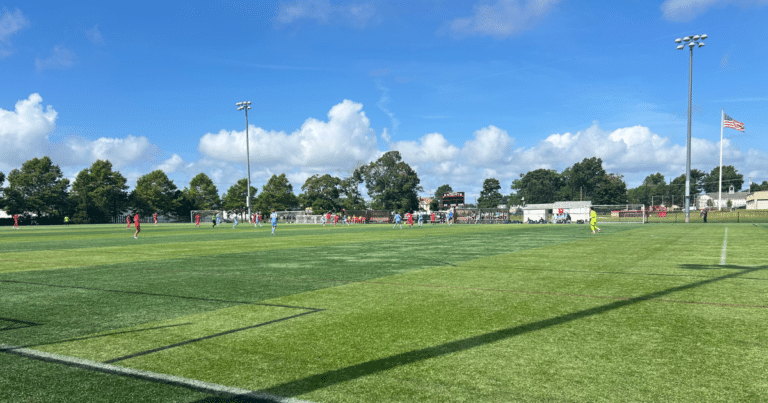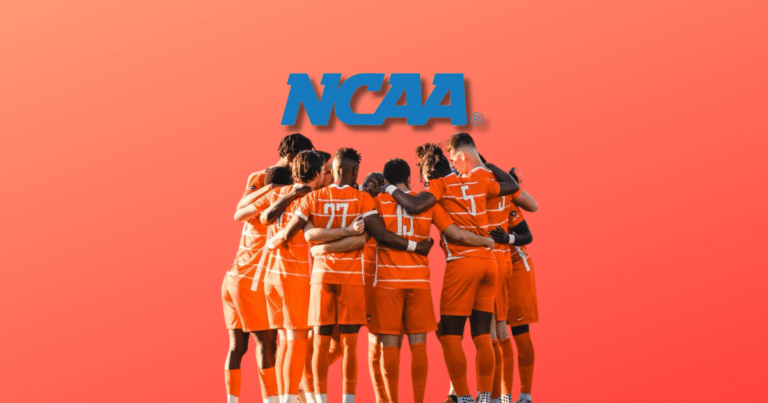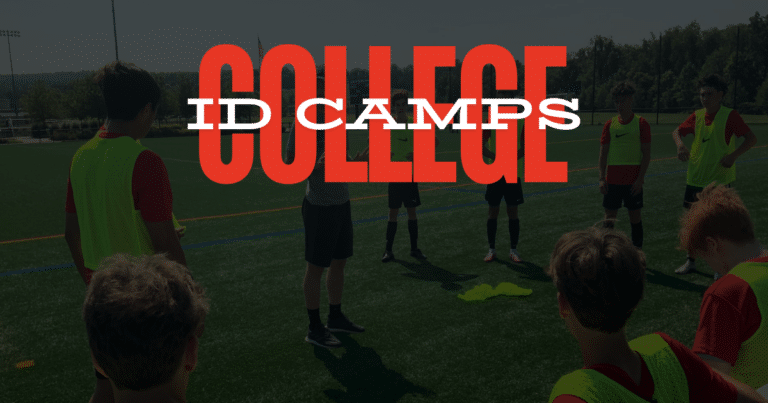What is NIL in College Sports?
NIL may be a term you’ve heard thrown around on social media or in the news recently. And, rightfully so, it’s big news in the world of all college sports.
NIL stands for “name, image, and likeness,” and it refers to the ability of college athletes to profit off of their own personal brand.
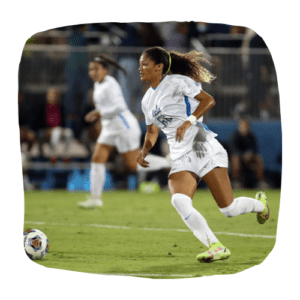 In the past, college athletes were not allowed to receive any compensation beyond their school’s scholarships. Colleges were profiting off their student-athletes and raking in millions upon millions of dollars.
In the past, college athletes were not allowed to receive any compensation beyond their school’s scholarships. Colleges were profiting off their student-athletes and raking in millions upon millions of dollars.
With the rise of social media and the increasing value of personal brands, many people began to question whether this was fair to the dedicated student-athletes.
As a result, the NCAA has changed its rules to allow athletes to make money from their NIL, as long as it is not tied to their athletic performance or recruitment.
In more ways than one, this has opened up new opportunities for college athletes to earn money while still competing at the collegiate level.
However, there are still many questions about how NIL will be regulated and how it will impact the landscape of college sports.
In this article, we will explore the ins and outs of NIL in college sports, including what it means, how it works, and what the future might hold.
What is NIL?
In this section, we’ll break down the definition of NIL, its history, the NCAA’s stance on it, and the impact it’s having on college sports.
The Definition of NIL
NIL stands for “name, image, and likeness.”
In simple terms, it refers to the ability of college athletes to profit from their own name, image, and likeness. Essentially, their personal brand.
These well-known athletes can make money from things like endorsements, sponsorships, and social media posts.
The History of NIL
The concept of NIL has been around for a long time, but it wasn’t until recently that it became a hot topic in college sports.
In 2019, California passed a law that would allow college athletes in the state to profit from their NIL starting in 2023.
Other states soon followed suit, and by 2021, several states had passed similar laws. We’ve listed the states that have approved NIL deals later in this post.
The NCAA’s Stance on NIL
For decades, the NCAA had strict rules in place that prohibited college athletes from profiting off their own name, image, and likeness.
However, in 2021, the NCAA changed its rules to allow athletes to profit from their NIL. This decision came after mounting pressure from lawmakers, athletes, and the public.
Honestly, I think it’s a great decision to pass it through and allow college kids to profit from their own brand. These athletes work so hard to perform for their schools and bring in revenue, they should be able to profit from it.
The Impact of NIL on College Sports
The impact of NIL on college sports is still being felt, but it’s clear that it’s changing the landscape of college athletics.
Athletes are now able to make money, which has led to some high-profile endorsement deals and partnerships.
However, there are also concerns that NIL could create an uneven playing field, with athletes at larger schools having an unfair advantage. This can also sway student-athletes from making a decision on which school to attend for the sake of earning more money while they are in college.
How NIL Affects College Athletes
As a college athlete, you may be wondering how the new NIL rules affect you. Here are some things you should know:
The Benefits of NIL for College Athletes
The benefit of NIL for college athletes is three-fold.
First, as already mentioned above, you can now make money off your personal brand. This means that you can sign endorsement deals, get paid for social media posts, and make appearances for money.
Second, it can help you build your personal brand. By working with companies and building a following on social media, you can increase your visibility and potentially attract more fans and followers.
Third, it can help you transition for life after sports. A personal brand can open up opportunities for many other things including business partnerships. The show can go on after you hang up the cleats.
The Risks of NIL for College Athletes
While there are benefits to NIL, there are also risks to consider.
One risk is that you may be taken advantage of by companies or individuals who are looking to exploit you for their own gain. It’s important to be careful and do your research before signing any deals.
Another risk is that NIL could potentially affect team dynamics. If some players are making significantly more money than others, it could create tension and resentment within the team.
The Future of NIL for College Athletes
The future of NIL is still uncertain, but it’s clear that it’s here to stay. As more states pass their own NIL laws and the NCAA continues to develop its own guidelines, it’s important to stay informed and up-to-date on the latest developments.
One thing to keep in mind is that NIL is still subject to certain restrictions. For example, you cannot receive payment from a private organization in exchange for attending a particular school or for participating in a particular sport. It’s important to understand these restrictions and make sure you’re following the rules.
NIL for Soccer
Now that we’ve laid out the basics, are you a soccer player interested in a NIL deal?
As a college soccer player, you can now earn money through sponsorships, endorsements, and social media promotions if you’ve built a personal brand.
Companies won’t give NIL deals out to anyone though. It has to be a win for them. And, what they really want is more eyeballs on their brand. This means you must have a large (or fast growing) social media presence.
If you think that you can benefit a service or product, it won’t hurt to reach out to the company to discuss a potential NIL partnership. The worst they can say is “no” and maybe provide you feedback on what you need to do.
To put luck in your own pocket, the best thing you can do now is to grow your social following. Put your personal brand out there and document your college athletic experience with the world. But, at the same time, don’t let the power of social media distract you from what’s important…your academics and soccer.
How NIL Affects College Sports Fans
The Benefits of NIL for College Sports Fans
With the new NIL rules, college sports fans can expect to see more engagement from their favorite athletes.
Student-athletes will now have the opportunity to monetize their personal brand, which may lead to more active social media accounts and increased visibility. This could translate to more fan interaction and a deeper connection between athletes and their supporters.
Additionally, the increased financial opportunities for student-athletes may lead to a higher quality of play on the field. With the potential to earn money through endorsements and other opportunities, athletes may be more motivated to perform at their best and showcase their skills.
The Risks of NIL for College Sports Fans
While there are certainly benefits to the new NIL rules, there are also some potential risks for college sports fans.
One concern is that the focus on individual brands and endorsements could detract from the team aspect of college sports. Fans may worry that athletes are more focused on their personal gain than on the success of their team.
Another risk is that the new rules could create an uneven playing field in college sports. Wealthy boosters and alumni may be able to offer lucrative endorsement deals to athletes, giving certain teams an unfair advantage over others.
The Future of NIL for College Sports Fans
It’s still too early to say exactly how the new NIL rules will impact college sports fans in the long term. However, it’s clear that the monetary landscape of college sports is changing rapidly.
As more and more student-athletes begin to cash in on their personal brands, fans can expect to see a shift in the way athletes interact with their supporters.
Overall, the new NIL rules have the potential to be a positive change for college sports fans. However, it’s important to keep an eye on any potential negative impacts and work to ensure that college sports remain fair and enjoyable for all fans.
Which States Have NIL Laws?
As of May 2023, 28 states have passed NIL legislation, with more expected to follow suit. Some states have proposed and waiting for approval. While others have repealed previous NIL laws. Here’s a breakdown of the states that have passed active NIL laws in place:
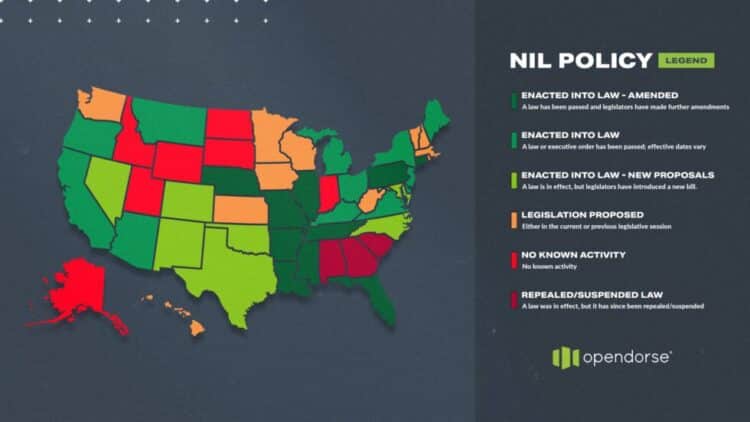
- Arizona
- Arkansas
- California
- Colorado
- Connecticut
- Delaware
- Florida
- Illinois
- Kentucky
- Louisiana
- Maine
- Maryland
- Michigan
- Mississippi
- Missouri
- Montana
- Nebraska
- Nevada
- New Jersey
- New Mexico
- New York
- North Carolina
- Ohio
- Oklahoma
- Oregon
- Pennsylvania
- Tennessee
- Texas
This might list might get stale as there are many moving parts with states proposing, approving, and repealing so follow this list as it will be more up-to-date by the time you read it.
It’s important to note that each state’s NIL laws differ in terms of what student-athletes are allowed to do and what restrictions are in place.
For example, some states allow student-athletes to receive compensation for endorsements and sponsorships, while others only allow compensation for certain types of activities, such as autograph signings or social media posts.
Additionally, some states have specific requirements for student-athletes and institutions to follow in order to comply with the NIL laws. For example, Florida requires student-athletes to disclose any NIL deals to their institution, while California prohibits institutions from preventing student-athletes from participating in NIL activities.
If you’re a student-athlete looking to take advantage of NIL opportunities, it’s important to familiarize yourself with the specific laws in your state and make sure you’re following all requirements and restrictions. The worst thing you can do is ignore it. It could cost you your college career.
Is There a Cap on NIL Money?
Is there a cap on NIL money? Nope.
Student-athletes can earn as much money as they can through endorsements, sponsorships, and other opportunities that come their way.
However, it’s important to note that the amount of money a student-athlete can earn will depend on a variety of factors, including their sport, their level of fame, and their social media following.
While there is no cap on NIL money, there are some restrictions that student-athletes need to be aware of. For example, student-athletes cannot use their school’s logos or trademarks in their endorsements or promotions. Additionally, student-athletes cannot use their status as a student-athlete to promote a product or service.
Some of the Highest Paid College Athletes
If you’re curious about who the highest-paid college athletes are, you’re in the right place. Here are some of the highest-paid college athletes, according to various sources:
Bronny James
As a senior high school basketball player committed to USC, Bronny’s NIL valuation is set at $7.2 million due to his partnerships with companies such as Nike, Beats by Dre, and PSD Underwear.
Olivia Dunne
Olivia Dunne signed a deal with GK Elite, a gymnastics apparel company, to promote their products on her social media accounts. It is reported she will earn $1.2 million from NIL deals.
Hercy Miller (Master P’s son)
Hercy Miller, the son of Master P, is a basketball player at Tennessee State. He has reportedly signed a $2 million NIL deal with Web Apps America, making him one of the highest-paid college athletes.
Bo Nix
Bo Nix, a quarterback for Auburn, has reportedly signed a $1.5 million NIL deal with Milo’s Tea Company. He’s also signed deals with other companies, including a memorabilia company and a nutrition company.
McKenzie Milton
McKenzie Milton, a quarterback for Florida State, has reportedly signed a $1.3 million NIL deal with a local car dealership. He’s also signed deals with other companies, including a memorabilia company and a sports drink company.
Hansel Enmanuel
Hansel Enmanuel, a 6’7″ basketball player for Northwestern State, has reportedly signed a $1.4 million NIL deal with USAT. He’s also signed deals with other companies, including a memorabilia company and a sports drink company.
Paige Bueckers
Paige Bueckers, a basketball player for UConn, has reportedly signed a $1 million NIL deal with Gatorade. She’s also signed deals with other companies, including a memorabilia company and a sports drink company.
Final Thoughts on NIL Deals
There’s obviously a lot of money flying around college sports. NIL is a significant change that has opened up new opportunities for college athletes to monetize their name, image, and likeness.
This change has been long overdue, as college athletes have been generating billions of dollars for their universities and the NCAA without receiving any compensation.
With the implementation of NIL, college athletes can now earn money while they play, providing them with financial security and the ability to profit from their hard work and talent.
While there are still questions and concerns about how NIL will affect college sports, it is clear that this change has been a long time coming and is a positive step towards fair compensation for college athletes.

Written By: SoccerNovo
SoccerNovo is an independent youth soccer media brand built to help parents, players, and coaches better understand the game and the pathways available in U.S. soccer. Our mission is to make youth soccer simpler, clearer, and more accessible for everyone involved in it.
Let’s connect


